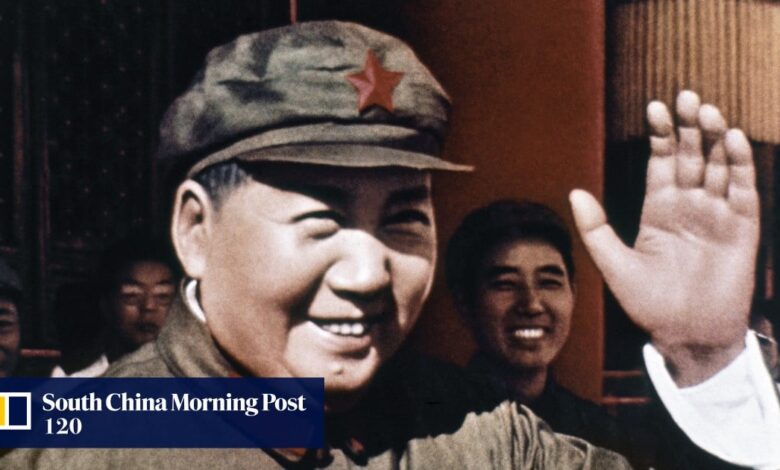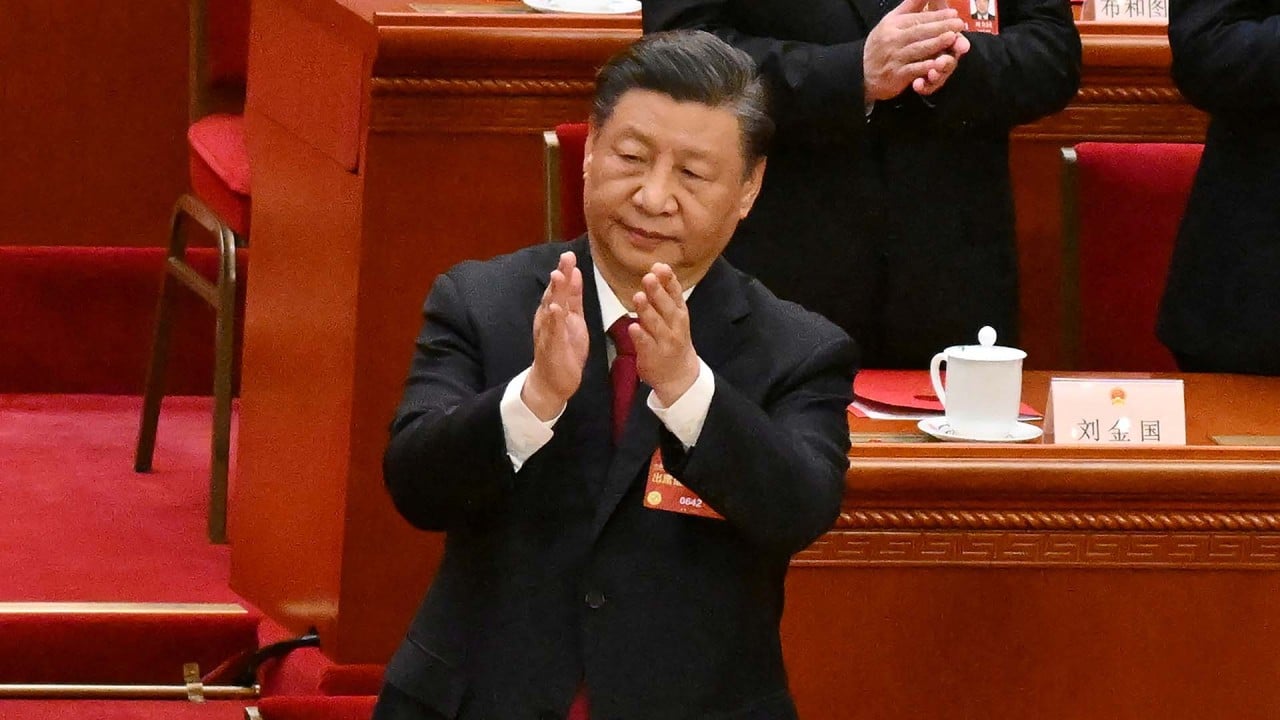Mao praised it, Xi Jinping is pushing it: what renewed focus on ‘Fengqiao experience’ says about China ‘in the new era’

China Police Daily called the incident the latest example of the “Fengqiao experience in the ‘new era’”, referencing the phrase used by President Xi Jinping to describe China under his governance. With the aid of big data, it took only five minutes for the police to prevent a cybercrime, the report said.
Dating back to the times of Mao Zedong, the “Fengqiao experience”, or fengqiao jingyan, is a mechanism for mobilising the masses to resolve social conflicts at the grass-roots level without needing to involve higher legal bodies. It is named after the district in Zhejiang reported to have been praised by Mao in 1963 for managing social problems locally.
Xi Jinping says Communist Party control too weak in rural China: new book
Xi Jinping says Communist Party control too weak in rural China: new book
Xi has consistently supported the model as a vehicle for social management and stability since his days as the Communist Party chief of Zhejiang in the early 2000s.
In 2013, marking the 50th anniversary of Mao’s comments on the Fengqiao experience, Xi issued “important instructions” on its development, according to state media.
Again, in his work report to the party’s 20th national congress last year, Xi made a note of the Fengqiao experience as an integral part of improving “social governance”.
Party mouthpiece People’s Daily has also played up the concept in recent years. The latest instance was a commentary in September, where it mentioned its new characteristics of “combining human power and technology”.
On Monday, Xi attended a conference in Beijing centred on the Fengqiao experience – applied nationwide in the 60 years since Mao applauded it. Xi also hosted representatives from around the country of local authorities that apply the “Fengqiao model” in daily administration.
Addressing the event, the party’s top security official, Chen Wenqing, said China would stick to and develop the model so that dispute prevention and mediation could be carried out by grass-roots bodies and the public to build a secure and stable social environment, state news agency Xinhua reported.
“We must achieve that ‘small things do not leave the village, big things do not leave the town, and conflicts do not turn over’,” he said, referring to the core concept of the Fengqiao experience as highlighted in the 1960s.
Reporting on the conference, the state-backed People’s Court Daily urged community-level courts to resolve public conflicts before they came to litigation, citing the example of a court in Jiangsu province that had reduced cases heard by 70 per cent over 10 years.
“I believe the ‘experience’ is closely connected to maintaining social stability,” he said.
It had become a Chinese-style social management model like the “grid system”, Yang added.
The grid-style management system, introduced in 2004 in Beijing, has now been widely adopted across China. It involves large cities being divided into small segments to be placed under the watch of specific police and government units down to the lowest level, in a system that helps to clearly identify whom to hold responsible in case of undesirable incidents.
This too has been flagged by some observers as a tool for social control.
But Yang said the Fengqiao model was a realistic method of social management, as the court system has limited power and it would cost a great deal to solve all conflicts legally.
In a 2021 speech reported by Qiushi, the party’s most authoritative theoretical journal, Xi said China’s special circumstances meant that it could not become “a country of litigation”.
“We have 1.4 billion people, if everything, big or small, has to be decided by a lawsuit, our system wouldn’t be able to bear the burden,” he said, calling for more legal power to guide and mediate conflicts, and insisting on the Fengqiao experience.
When Mao praised the model, its underlying aim was to “unleash and rely on the masses” and resolve tensions locally. He had not only applauded the idea but also written instructions on extending the experiment to “various areas”.
Dusted off in the Xi era, the concept has been reapplied as part of a general process of much greater social and political control over the whole of Chinese society, according to CMP director David Bandurski.
“It has now become an important part of the official language about rule of law and public security,” he said.
There is no clear definition of the Fengqiao experience, only a vague principle that conflicts should be solved at the grass-roots level, and not sent up the management system.
One characteristic of a party-led system was that there was no legally set model, Yang at the University of Chicago said. Top leaders usually offered a loose outline, while in practice, people usually followed precedent.
A recent article in the Peace Times, the official police newspaper of Zhejiang, gave an example of the model at work at a police station in Fengqiao, the birthplace of the concept.
The report said the police had three tricks in their bag – a stool, a notepad and a basketball. They sit on the stool to chat with villagers whenever possible, record their complaints on a pad, and play basketball with the youngsters to develop close ties.
“As a result, the villagers will … report any tips on crime to the police,” the article said, highlighting how one officer had uncovered two gambling schemes on a tip-off.
Bandurski said there were reasons to be concerned about this model, describing it as a method of broad social and political surveillance.
China’s petition office promises to tackle ‘backlog of complaints’
China’s petition office promises to tackle ‘backlog of complaints’
Yang said that since the Fengqiao experience was a loose concept, different local governments had their own understanding of it and could only implement the model to the best of their ability.
The model could also make lower-level networks try to sweep problems under the rug, he said.
“As we can see with the recent Heilongjiang gym collapse, when accidents happen, the first thing local officials want to do is to maintain stability and smooth things over, so that they do not suffer any loss,” he said.
Three students were killed earlier his week when the roof of a fitness gym in Jiamusi in northeastern Heilongjiang province collapsed following heavy snowfall. Online posts on the incident have since been deleted and the mother of one of the victims claimed on social media that she had been pressured by local authorities to say nothing.






